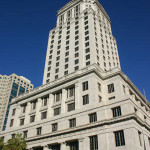Collection Law Firms Ensure Debtor Compliance with Discovery in a Debt Collection Matter
After a judgment is obtained in a debt collection case, the Court typically orders that the debtor be required to answer post-judgment discovery. Our collection lawyers can either take the deposition of the debtor or prepare interrogatories to assist our collection law firm discover assets in the debt collection matter. Depending on the balance of money owed to our client, our collection attorney will recommend which is the most cost effective way to proceed.
Our collection attorneys are able to compel the debtor in a debt collection matter to make a full financial disclosure of its assets. If the debtor does not comply our collection lawyer will petition the Court to have the debtor appear for the Judge and explain why the debtor has not provided the required financial disclosure. Once there is a disclosure our collection law firm will discuss with the creditor the best way to attach assets.
Our collection attorney always asks a client if they have any bank account information from past business transactions with the debtor. The debtor may be using the same bank account. Our collection lawyer will then have the Court issue a writ of garnishment. The writ of garnishment is then served on the bank. If the debtor still maintains accounts, the bank will notify our debt collection law firm. Then after 30 days, our collection lawyers will petition the court to then turn over the funds being held by the bank to our attorney trust account on behalf of our clients.
Our collection law firm would be happy to discuss post judgment collection strategies and or debt collection strategies with you. Please feel free to contact our collection law firm and speak to our debt collection attorneys. Our debt recovery firm would be happy to devise a collection strategy that is just right for your company.
[email protected]
